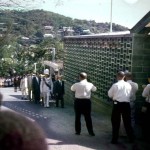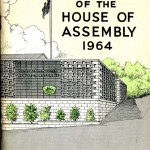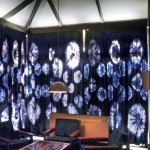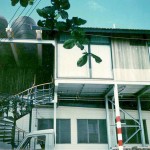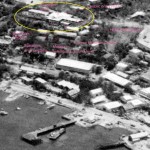 The House of Assembly was a very significant heritage building in a complex that was rich with the history of the development period of Australia’s trusteeship administration and the political formation of the nation and its self governing democratic institutions. It started life as a hospital which saw changes and growth and the advent of WW2, but later was turned to serve new administrative and political functions.
The House of Assembly was a very significant heritage building in a complex that was rich with the history of the development period of Australia’s trusteeship administration and the political formation of the nation and its self governing democratic institutions. It started life as a hospital which saw changes and growth and the advent of WW2, but later was turned to serve new administrative and political functions.
Old Museum and Art Gallery
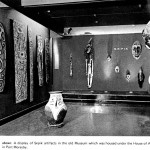

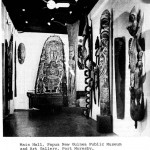
Images from Department of Information in National Museum booklet early 1980s
Further significance attached to the building through the fact that the national museum and art gallery was, at also house there at the same time, and mirrored in cultural terms the political developments going on literally above it.
Many important people in post war administration and the heroes of the formation of the nation, as well as numerous important events were tightly linked to the building and should be memorialised with it. Modesty, however, defined the whole complex both inside and out, although the massive block-work screen wall did have an imposing urban street presence.
Since both the museum (about 1977) and the parliament (1984) left as tenants to occupy their respective new buildings the building had a chequered history and suffered neglect, damage and finally demolition. Although it was the birthplace of the new nation it has been replaced in controversial circumstances by a development that in terms of respect for the past, for lessons from the past and national memory, and legacies for future generations, it leaves a lot to be desired.
The Chamber
Black and white images show a few important moments in the life of the building. The different views show some of the main features of the space. Note the interpreters’ booths behind glass over looking the proceedings. The early Assemblies catered for a number of key languages as not all members then spoke English or Pisin.
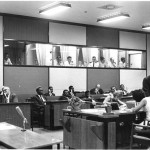
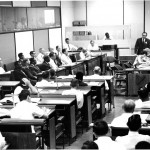

These images were from the Department of Information and Extension Services held in the late Rod Fowler’s archives.
‘Chief’ and PM’s Office
Views of the New office built for the then recently appointed Chief Minister of PNG was built just before independence. He continued to occupy it when he became the first Prime Minister of the new nation. The building was supported on a steel ‘bridge’ that carried it over the old Museum offices on the ground below.
